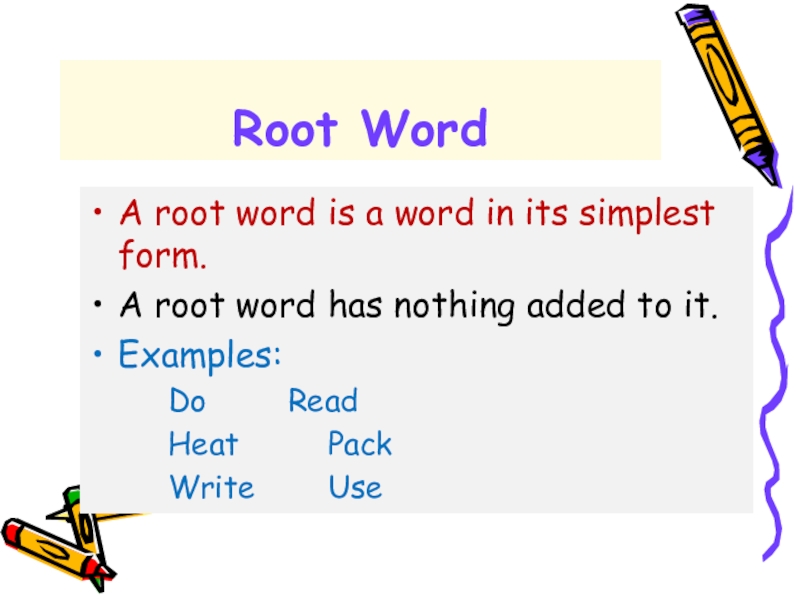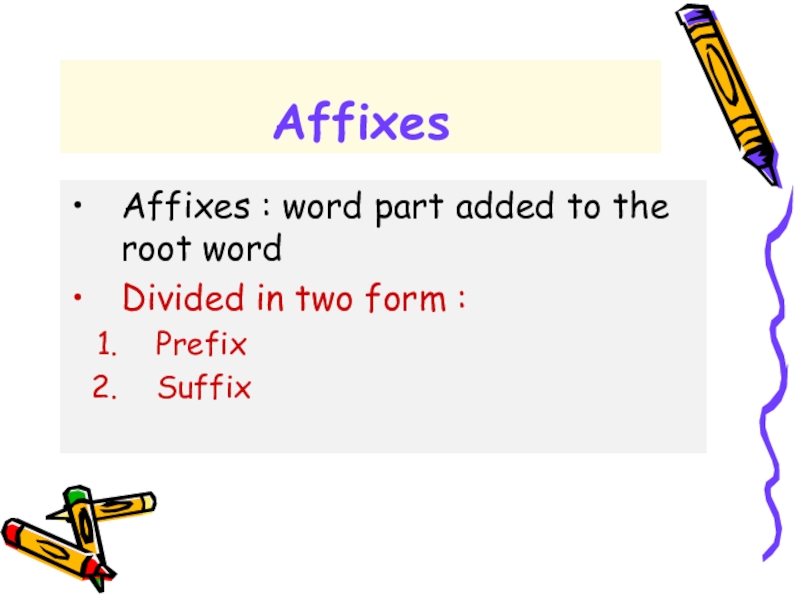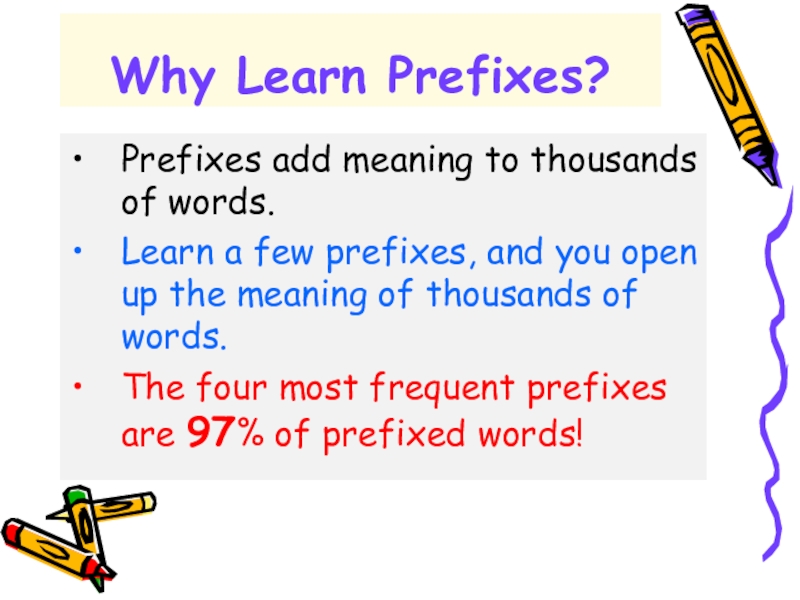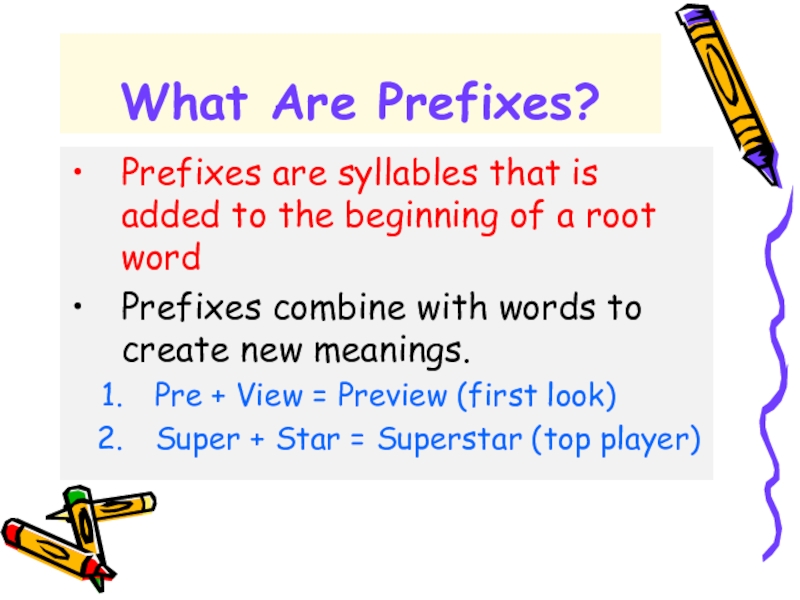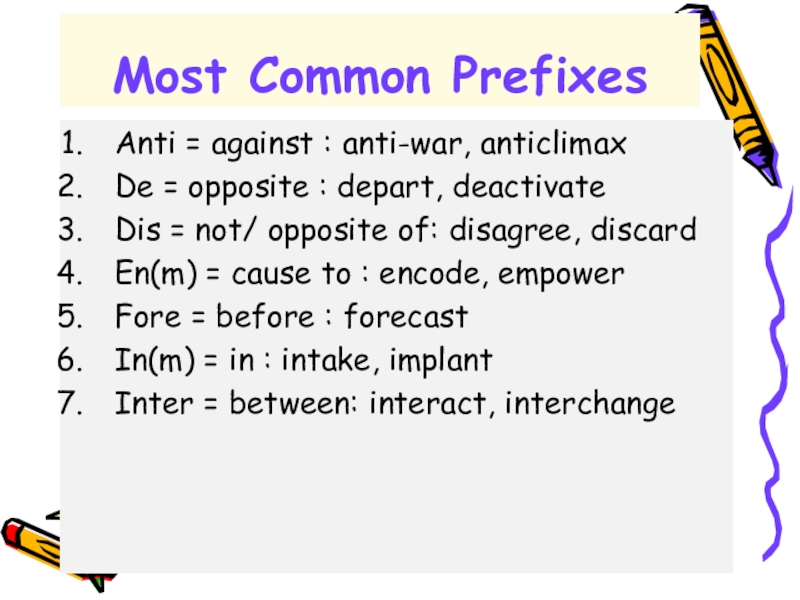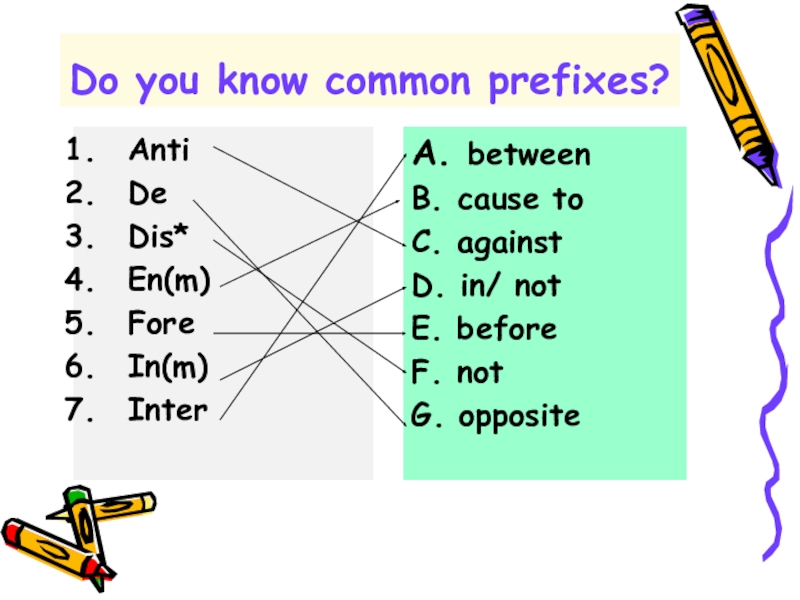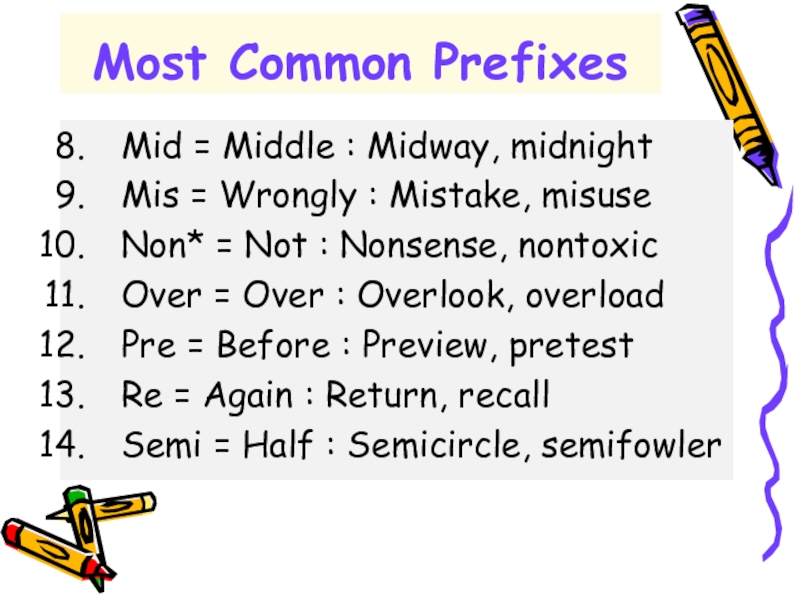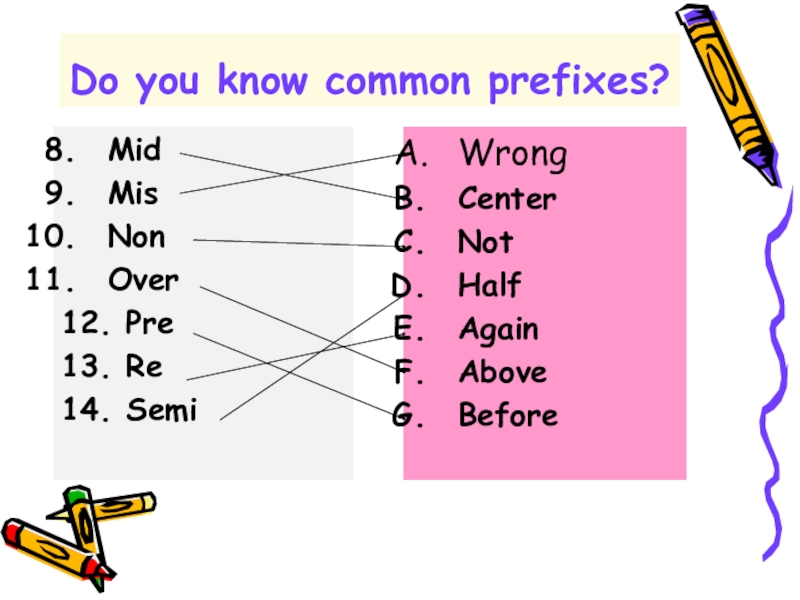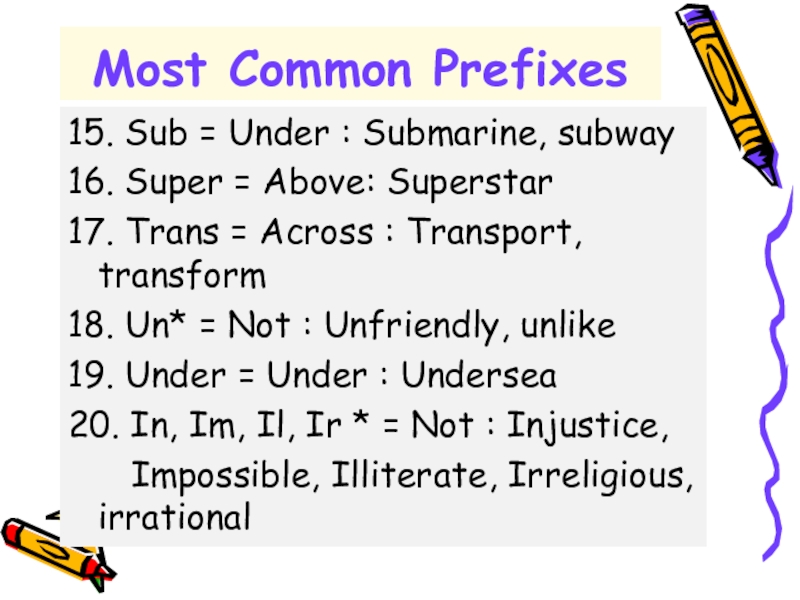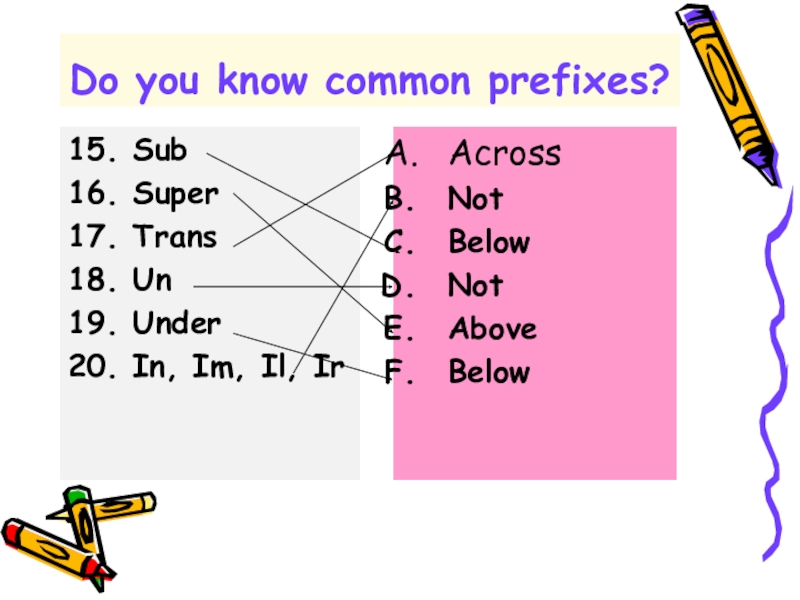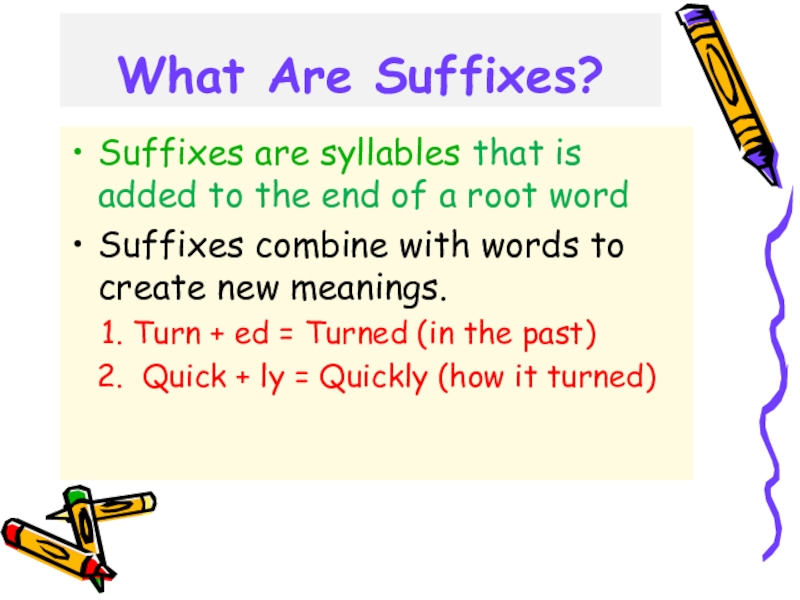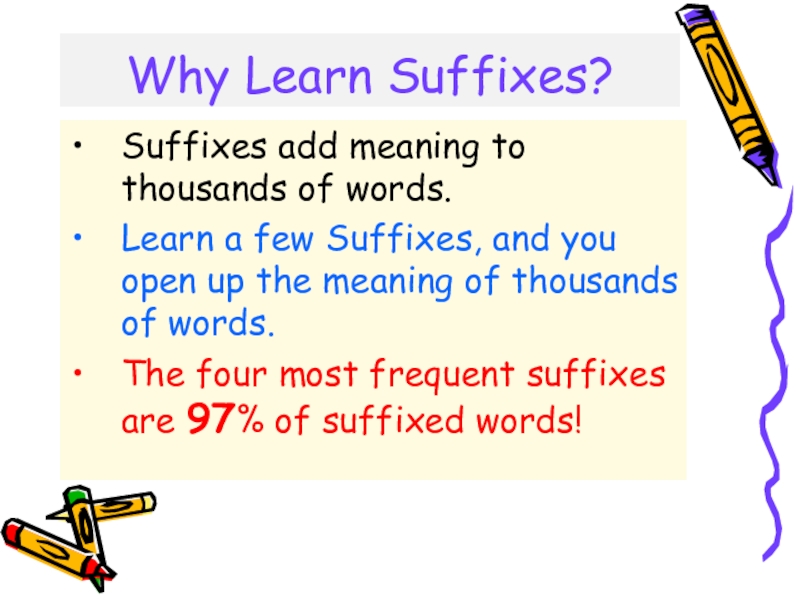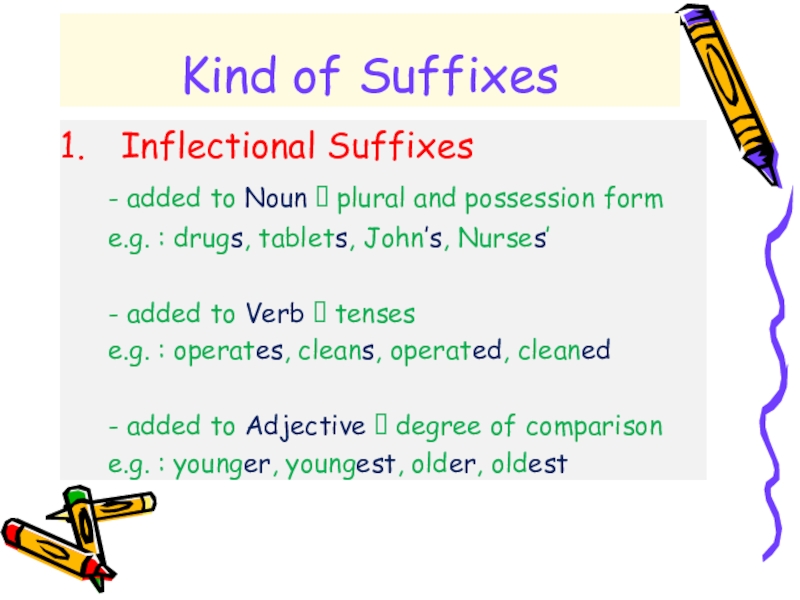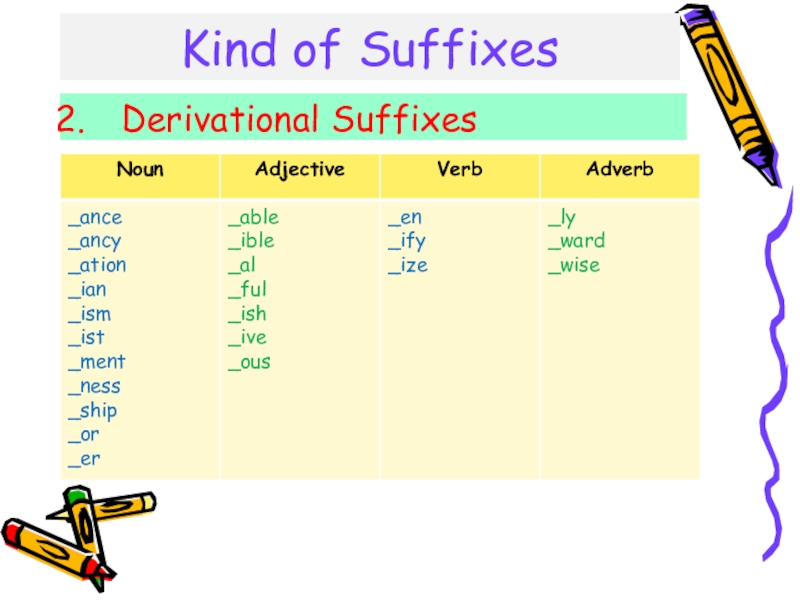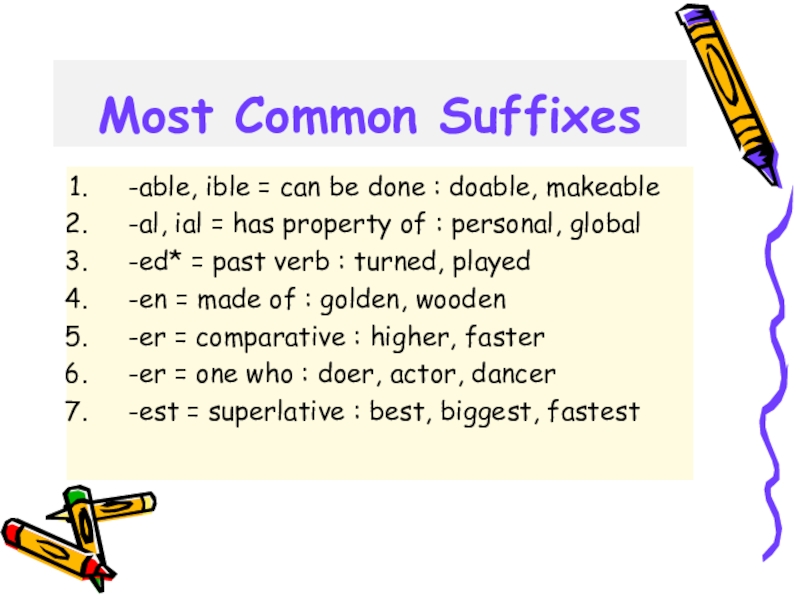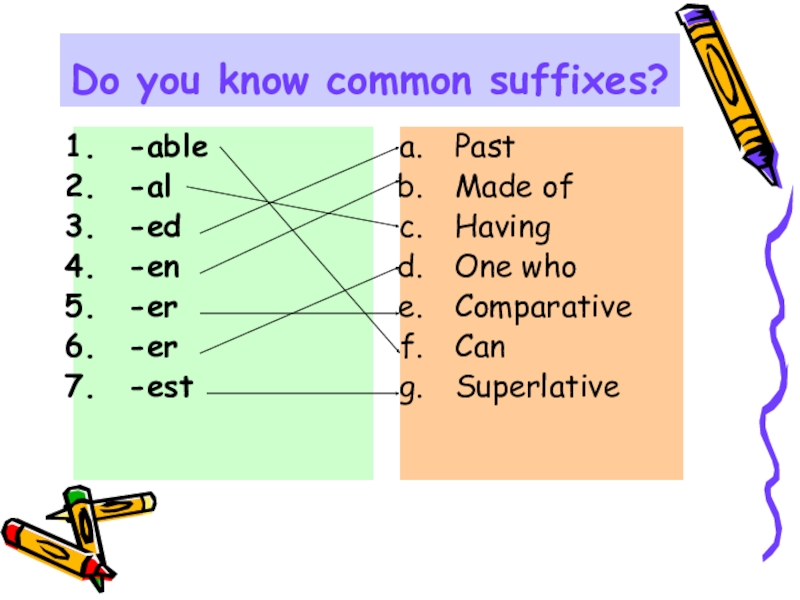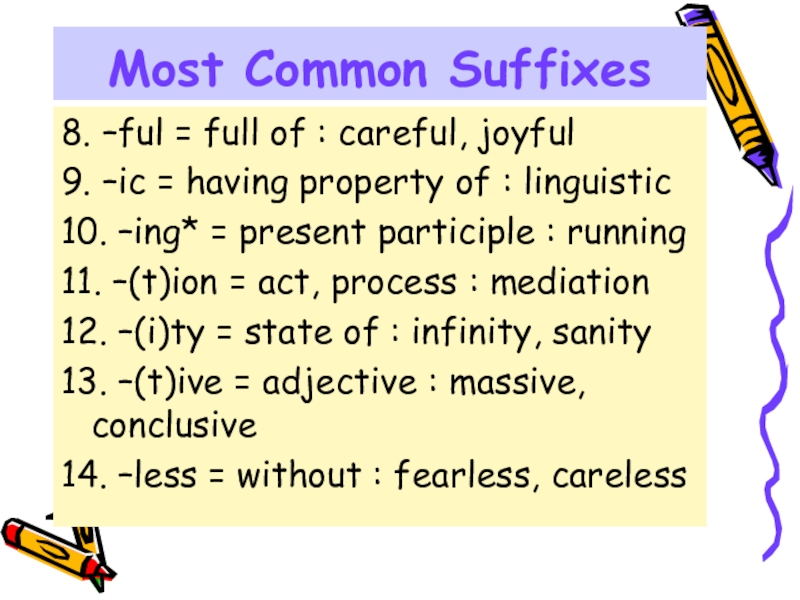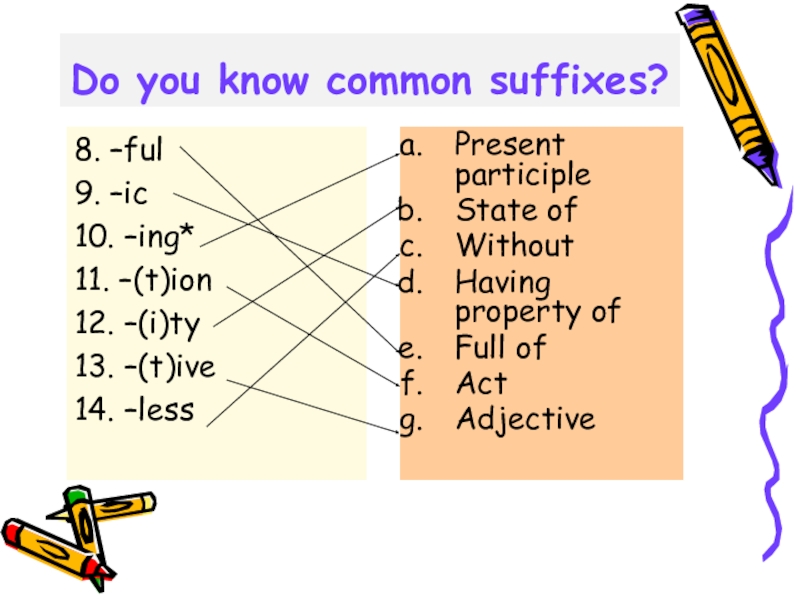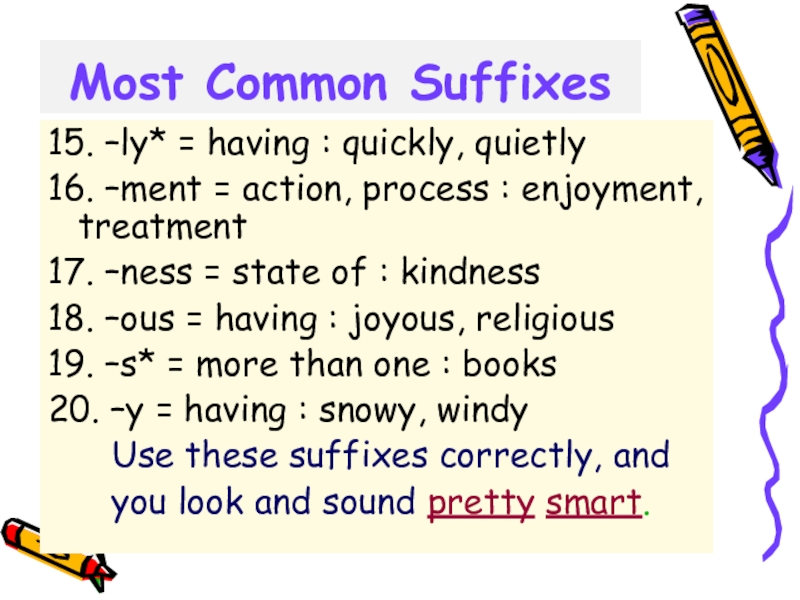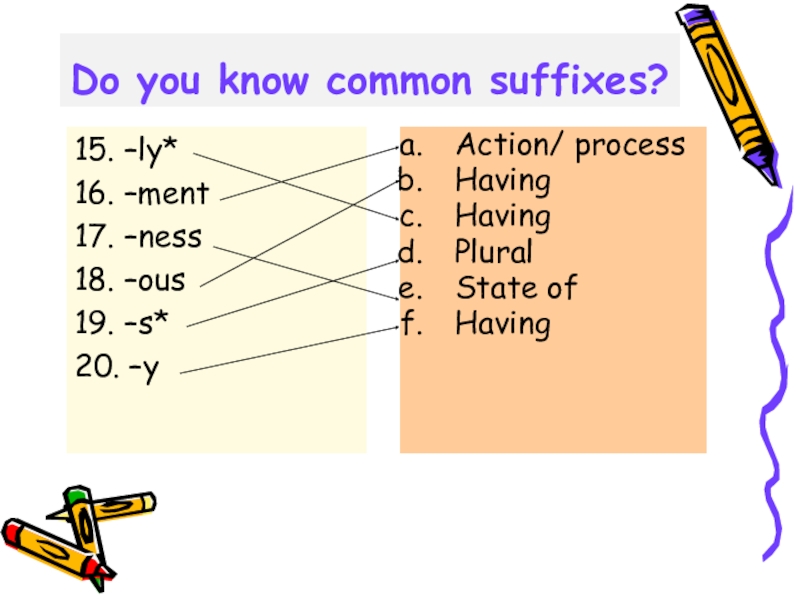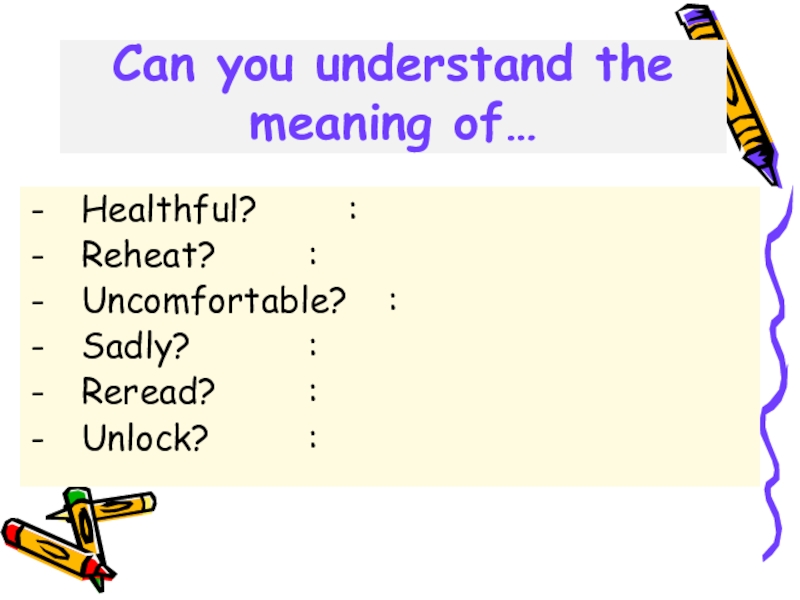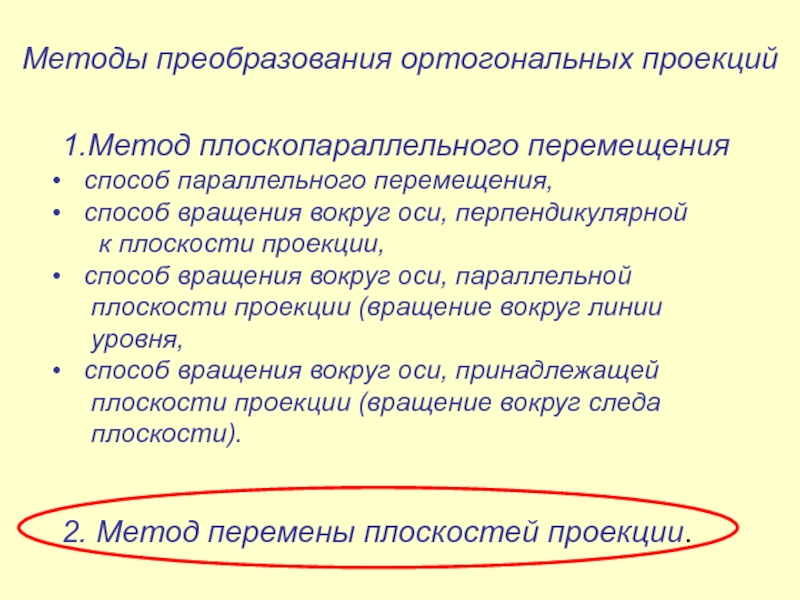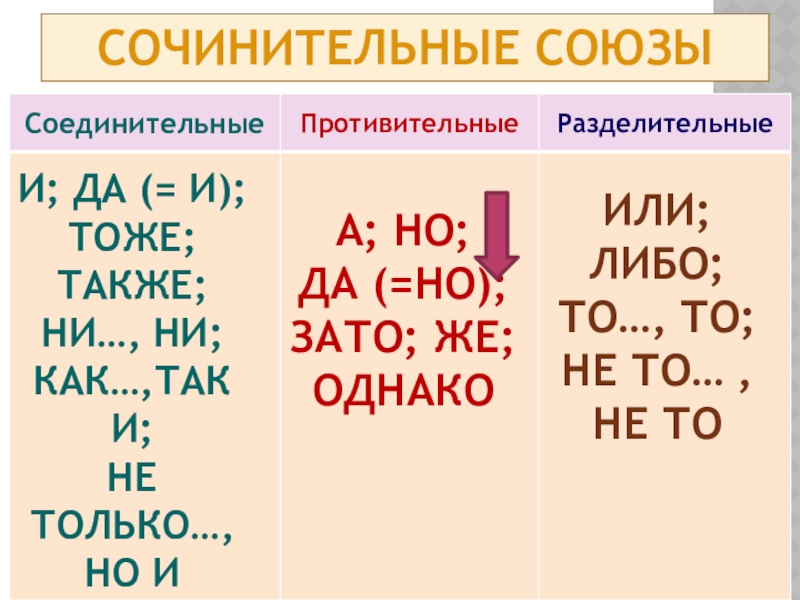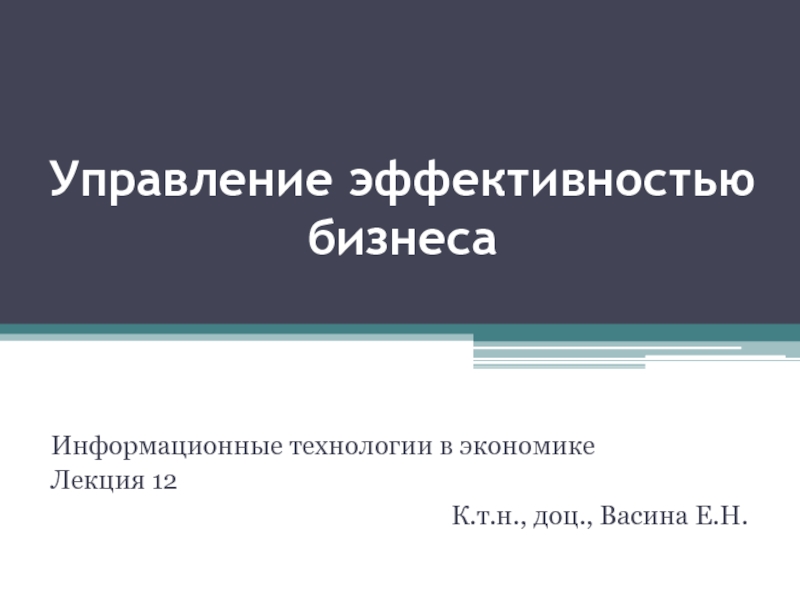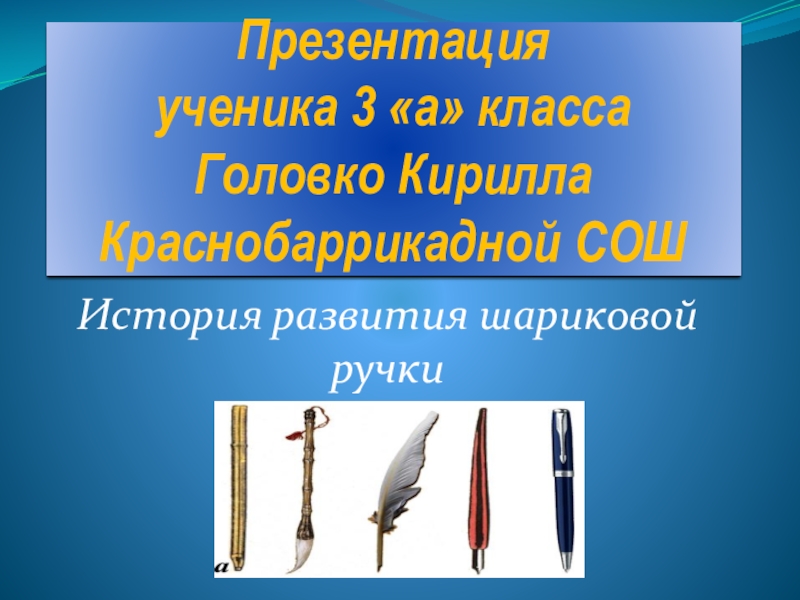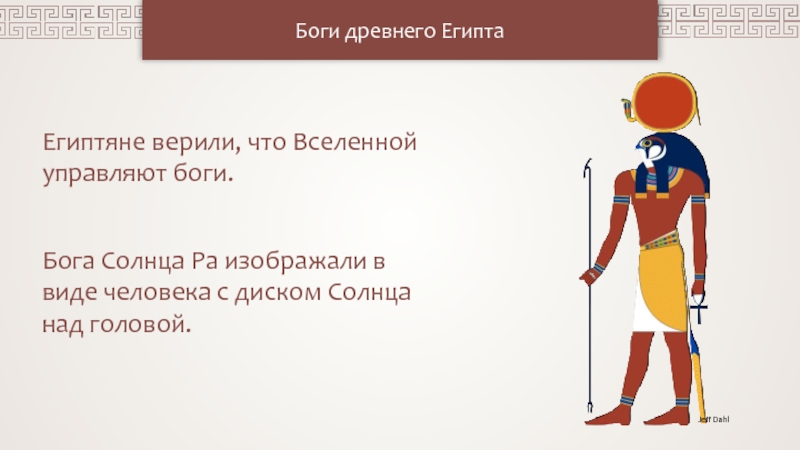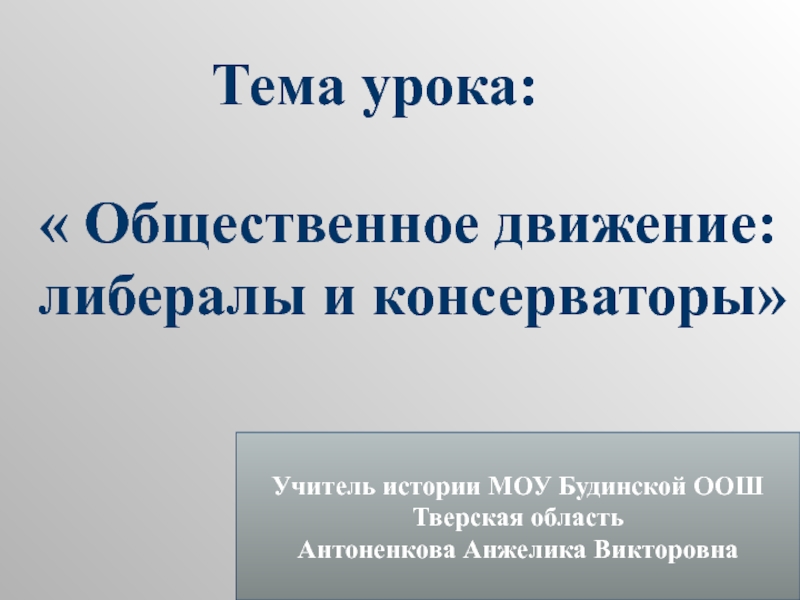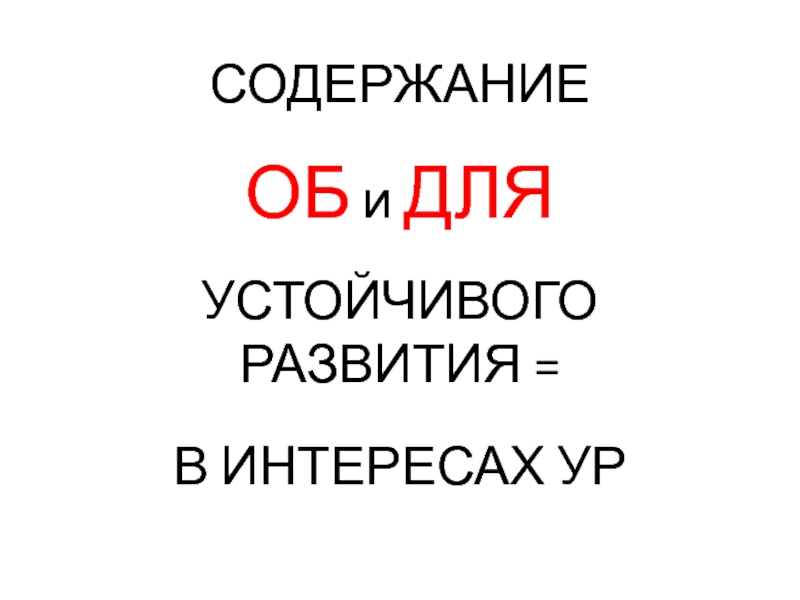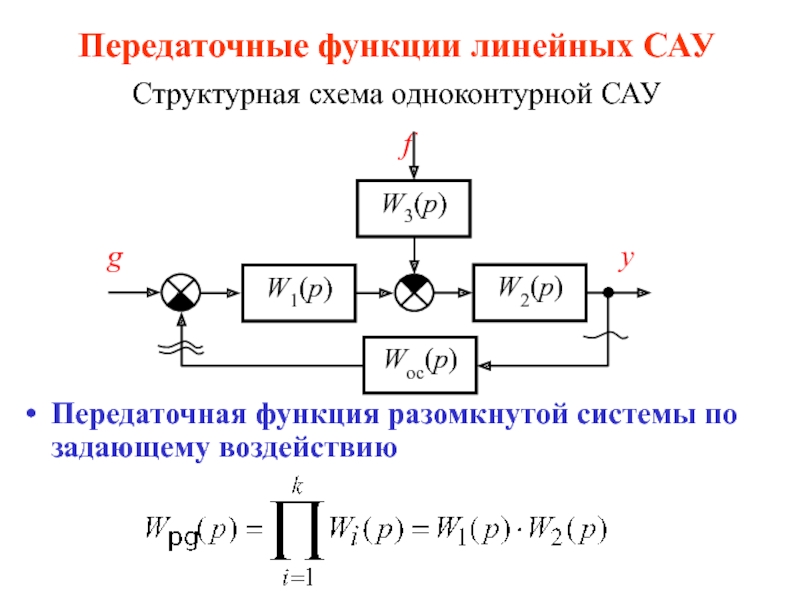Разделы презентаций
- Разное
- Английский язык
- Астрономия
- Алгебра
- Биология
- География
- Геометрия
- Детские презентации
- Информатика
- История
- Литература
- Математика
- Медицина
- Менеджмент
- Музыка
- МХК
- Немецкий язык
- ОБЖ
- Обществознание
- Окружающий мир
- Педагогика
- Русский язык
- Технология
- Физика
- Философия
- Химия
- Шаблоны, картинки для презентаций
- Экология
- Экономика
- Юриспруденция
Most Frequent Affixes (Prefixes and Suffixes)
Содержание
- 1. Most Frequent Affixes (Prefixes and Suffixes)
- 2. Root Word A root word is a
- 3. AffixesAffixes : word part added to the root wordDivided in two form :PrefixSuffix
- 4. Prefixes
- 5. Why Learn Prefixes?Prefixes add meaning to thousands
- 6. What Are Prefixes?Prefixes are syllables that is
- 7. Most Common PrefixesAnti = against : anti-war,
- 8. Do you know common prefixes?AntiDe Dis* En(m)ForeIn(m)
- 9. Most Common PrefixesMid = Middle : Midway,
- 10. Do you know common prefixes?MidMis NonOver12. Pre13. Re14. Semi WrongCenterNotHalfAgainAboveBefore
- 11. Most Common Prefixes15. Sub = Under :
- 12. Do you know common prefixes?15. Sub16. Super17. Trans18. Un19. Under20. In, Im, Il, IrAcrossNotBelowNotAboveBelow
- 13. Suffixes
- 14. What Are Suffixes?Suffixes are syllables that is
- 15. Why Learn Suffixes?Suffixes add meaning to thousands
- 16. Kind of SuffixesInflectional Suffixes - added to Noun
- 17. Kind of SuffixesDerivational Suffixes
- 18. Most Common Suffixes-able, ible = can be
- 19. Do you know common suffixes?-able-al-ed-en-er-er-estPastMade ofHavingOne whoComparativeCanSuperlative
- 20. Most Common Suffixes8. –ful = full of
- 21. Do you know common suffixes?8. –ful9. –ic10.
- 22. Most Common Suffixes15. –ly* = having :
- 23. Do you know common suffixes?15. –ly* 16. –ment17. –ness18. –ous19. –s*20. –yAction/ processHavingHavingPluralState ofHaving
- 24. Can you understand the meaning of… Healthful? :Reheat? :Uncomfortable? :Sadly? :Reread? :Unlock? :
- 25. Скачать презентанцию
Root Word A root word is a word in its simplest form. A root word has nothing added to it.Examples: Do Read Heat Pack Write Use
Слайды и текст этой презентации
Слайд 1Most Frequent Affixes (Prefixes and Suffixes)
Word Beginnings and Endings
You
Can Really Use in Reading Text
Слайд 2Root Word
A root word is a word in its
simplest form.
A root word has nothing added to it.
Examples:
Do Read
Heat
PackWrite Use
Слайд 5Why Learn Prefixes?
Prefixes add meaning to thousands of words.
Learn a
few prefixes, and you open up the meaning of thousands
of words.The four most frequent prefixes are 97% of prefixed words!
Слайд 6What Are Prefixes?
Prefixes are syllables that is added to the
beginning of a root word
Prefixes combine with words to create
new meanings.Pre + View = Preview (first look)
Super + Star = Superstar (top player)
Слайд 7Most Common Prefixes
Anti = against : anti-war, anticlimax
De = opposite
: depart, deactivate
Dis = not/ opposite of: disagree, discard
En(m) =
cause to : encode, empowerFore = before : forecast
In(m) = in : intake, implant
Inter = between: interact, interchange
Слайд 8Do you know common prefixes?
Anti
De
Dis*
En(m)
Fore
In(m)
Inter
A. between
B. cause
to
C. against
D. in/ not
E. before
F. not
G. opposite
Слайд 9Most Common Prefixes
Mid = Middle : Midway, midnight
Mis = Wrongly
: Mistake, misuse
Non* = Not : Nonsense, nontoxic
Over = Over
: Overlook, overloadPre = Before : Preview, pretest
Re = Again : Return, recall
Semi = Half : Semicircle, semifowler
Слайд 10Do you know common prefixes?
Mid
Mis
Non
Over
12. Pre
13. Re
14. Semi
Wrong
Center
Not
Half
Again
Above
Before
Слайд 11Most Common Prefixes
15. Sub = Under : Submarine, subway
16. Super
= Above: Superstar
17. Trans = Across : Transport, transform
18. Un*
= Not : Unfriendly, unlike19. Under = Under : Undersea
20. In, Im, Il, Ir * = Not : Injustice,
Impossible, Illiterate, Irreligious, irrational
Слайд 12Do you know common prefixes?
15. Sub
16. Super
17. Trans
18. Un
19. Under
20.
In, Im, Il, Ir
Across
Not
Below
Not
Above
Below
Слайд 14What Are Suffixes?
Suffixes are syllables that is added to the
end of a root word
Suffixes combine with words to create
new meanings.Turn + ed = Turned (in the past)
Quick + ly = Quickly (how it turned)
Слайд 15Why Learn Suffixes?
Suffixes add meaning to thousands of words.
Learn a
few Suffixes, and you open up the meaning of thousands
of words.The four most frequent suffixes are 97% of suffixed words!
Слайд 16Kind of Suffixes
Inflectional Suffixes
- added to Noun plural and
possession form
e.g. : drugs, tablets, John’s, Nurses’
- added to Verb
tensese.g. : operates, cleans, operated, cleaned
- added to Adjective degree of comparison
e.g. : younger, youngest, older, oldest
Слайд 18Most Common Suffixes
-able, ible = can be done : doable,
makeable
-al, ial = has property of : personal, global
-ed* =
past verb : turned, played-en = made of : golden, wooden
-er = comparative : higher, faster
-er = one who : doer, actor, dancer
-est = superlative : best, biggest, fastest
Слайд 19Do you know common suffixes?
-able
-al
-ed
-en
-er
-er
-est
Past
Made of
Having
One who
Comparative
Can
Superlative
Слайд 20Most Common Suffixes
8. –ful = full of : careful, joyful
9.
–ic = having property of : linguistic
10. –ing* = present
participle : running11. –(t)ion = act, process : mediation
12. –(i)ty = state of : infinity, sanity
13. –(t)ive = adjective : massive, conclusive
14. –less = without : fearless, careless
Слайд 21Do you know common suffixes?
8. –ful
9. –ic
10. –ing*
11. –(t)ion
12. –(i)ty
13.
–(t)ive
14. –less
Present participle
State of
Without
Having property of
Full of
Act
Adjective
Слайд 22Most Common Suffixes
15. –ly* = having : quickly, quietly
16. –ment
= action, process : enjoyment, treatment
17. –ness = state of
: kindness18. –ous = having : joyous, religious
19. –s* = more than one : books
20. –y = having : snowy, windy
Use these suffixes correctly, and
you look and sound pretty smart.

